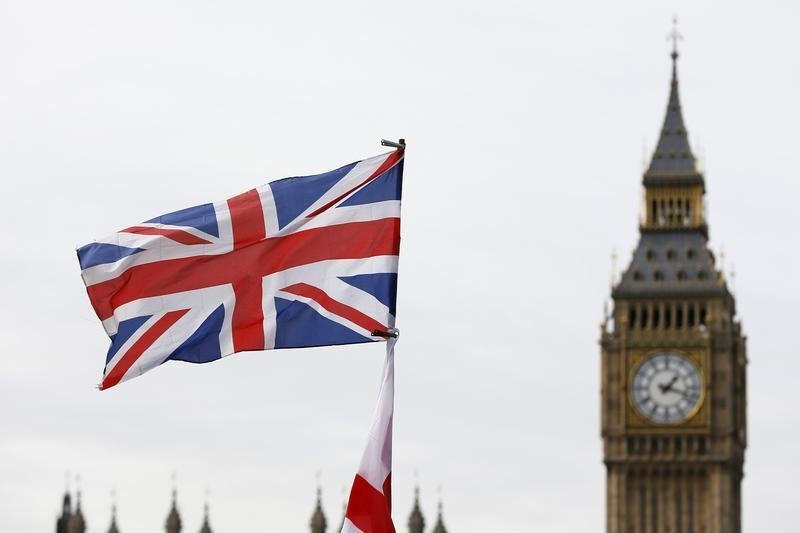By David Milliken
LONDON (Reuters) - Britain's economy finished 2016 strongly, growing at the fastest pace since mid-2015 according to one major survey, but higher prices look set to hit consumers soon as firms pass on a big rise in costs since June's vote to leave the European Union.
Companies in the dominant services sector reported activity rose at its fastest rate in 17 months in December, beating all forecasts in a Reuters poll and keeping Britain on track to be one of the world's fastest-growing advanced economies last year.
However, the Markit Purchasing Managers Index and a separate survey from the British Chambers of Commerce showed services firms are planning the most widespread price rises since 2011, raising the chance that inflation will climb rapidly.
Manufacturers in the BCC survey - which was conducted in November - plan the biggest price rises since the survey started asking about this nearly 20 years ago.
"Inflationary pressures (are) building throughout the supply chain," Capital Economics' analyst Scott Bowman said. "A moderation in growth in 2017 seems likely as rising inflation eats into households' real income growth."
Sterling's fall of nearly 20 percent against the U.S. dollar since the Brexit vote was cited by companies in both surveys.
The weak pound pushed up food and fuel prices strongly and costs for wages, plastic packaging and IT rose too, Markit said.
STRONG GROWTH
Britain's economy probably grew 0.5 percent in the final three months of 2016, barely slowing from the robust pace seen in the three months just after the Brexit vote, Markit said.
Separate figures showed households bought a record 2.69 million new cars last year.
"The UK economy continues to defy widely held expectations of a Brexit-driven slowdown," Markit's chief business economist, Chris Williamson, said.
But this is expected to change in 2017. A Reuters poll last month showed economic growth was forecast to halve to 1.1 percent this year as inflation approaches 3 percent from less than 1 percent last year.
Higher prices are likely to sap consumer spending - which is being supported by the fastest borrowing growth in 11 years - while the start of formal Brexit talks before the end of March will kick off a process that companies fear could lead to reduced access to EU markets.
This leaves the Bank of England in a quandary after it cut interest rates to a record-low 0.25 percent in August on fears of a sharp economic slowdown. In November the BoE said rates could move in either direction as it was only prepared to tolerate a limited overshoot of its 2 percent inflation target.
Samuel Tombs, an economist at Pantheon Macroeconomics, said the PMI data was still well below levels which had triggered past rate rises. "We expect growth in activity to be far too weak and uncertainty about the economic outlook to be too pressing for the (BoE) to hike rates this year," Tombs said.
(Graphic by Andy Bruce; Editing by Hugh Lawson)
